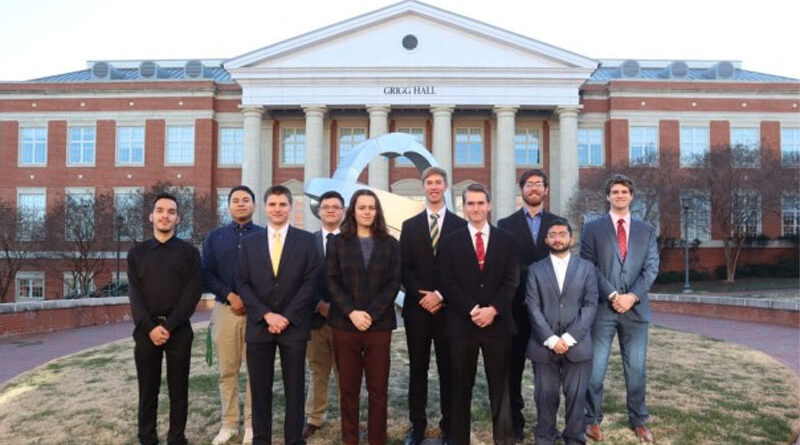Charlotte Design-Build-Fly Team Competing In The International DBF Competition
The Design-Build-Fly senior design team (DBF) is raising funds to compete in the international DBF competition sponsored by the American Institute of Aeronautics and Astronautics Foundation, Textron Aviation and Raytheon. Funding will help the DBF team design, build and test a radio-controlled aircraft to execute specific missions and travel to the competition.
Project lead Kyle VanHorn stated, “Being a part of the AIAA student branch has greatly shaped my college experience. It has given me an outlet to pursue my interests in aerospace, and it has helped connect me with professors and like-minded peers. The AIAA allowed me to connect with Assistant Professor Artur Wolek, who has served as my research advisor, and I have been fortunate enough to present my research at an AIAA conference at the Kennedy Space Center.”
This year’s mission is to execute an X-1 Supersonic Flight Test Program. To successfully complete all missions, this year’s aircraft must be able to carry payloads consisting of external fuel tanks and the X-1 test vehicle. The X-1 test vehicle shall be an autonomous glider that can be launched from the main aircraft during flight. Bonus mission points can be achieved if the X-1 test vehicle transitions to stable flight after launch, executes a 180’ turn, flies a descending pattern, and comes to rest in the designated landing zones.
More than 145 universities from around the world compete in this competition annually. To be competitive in the competition, the development of advanced designs and control systems are necessary. The cost of this project includes research, design, construction, and travel. This year’s competition will be hosted by Raytheon at the Tucson International Modelplex Park Association in Tucson, Arizona.
The DBF competition consists of three phases. During the first phases, teams from around the world create conceptual design to meet each year’s specific mission requirements. The designs are documented in a proposal and submitted to the competition committee by October 31, 2024. The top proposals are accepted, and those teams are invited to fully design, manufacture, and test their aircraft.

